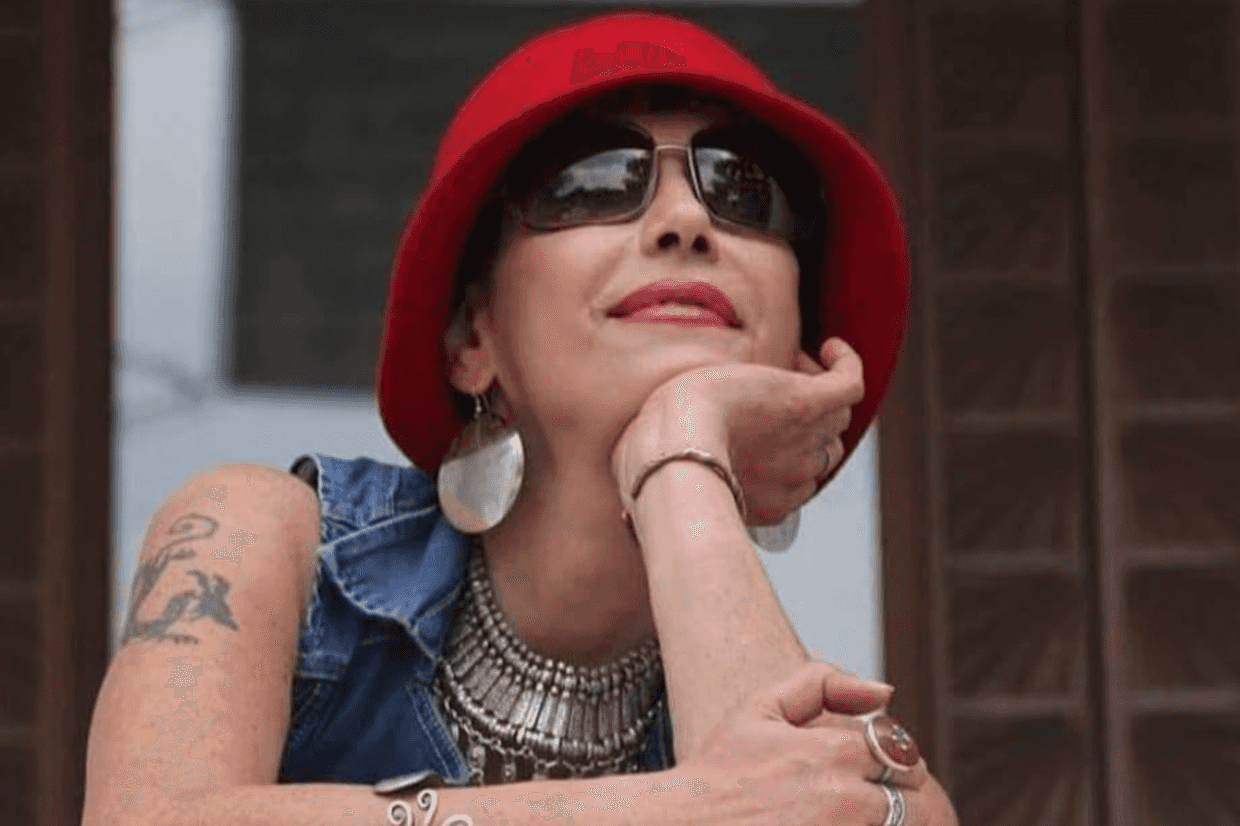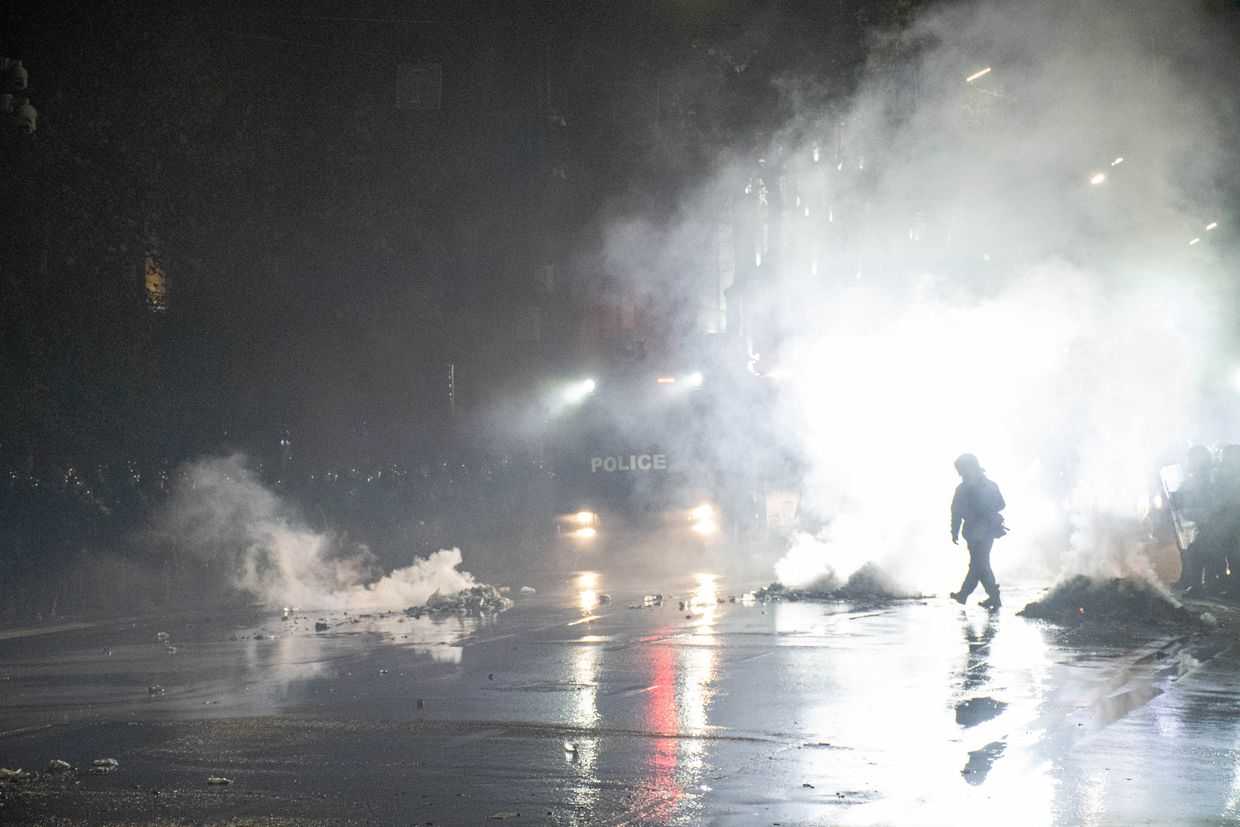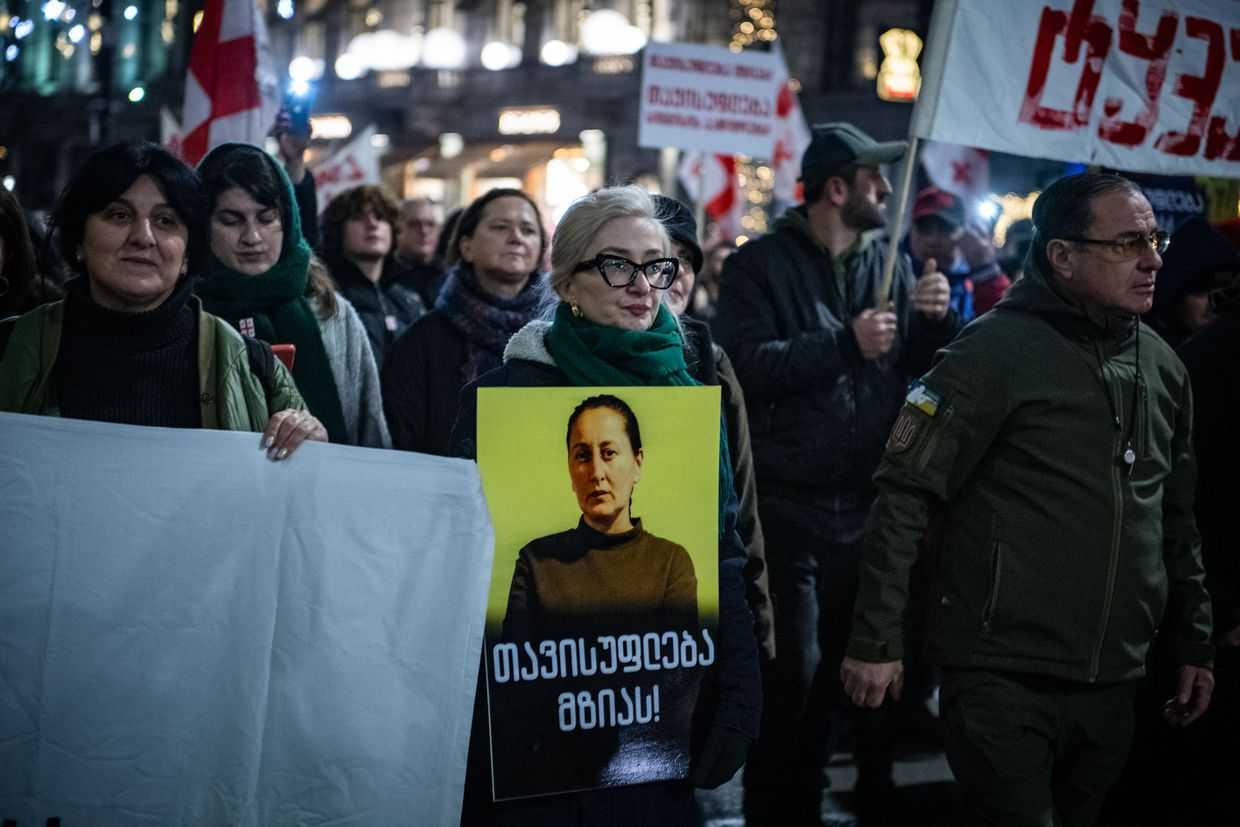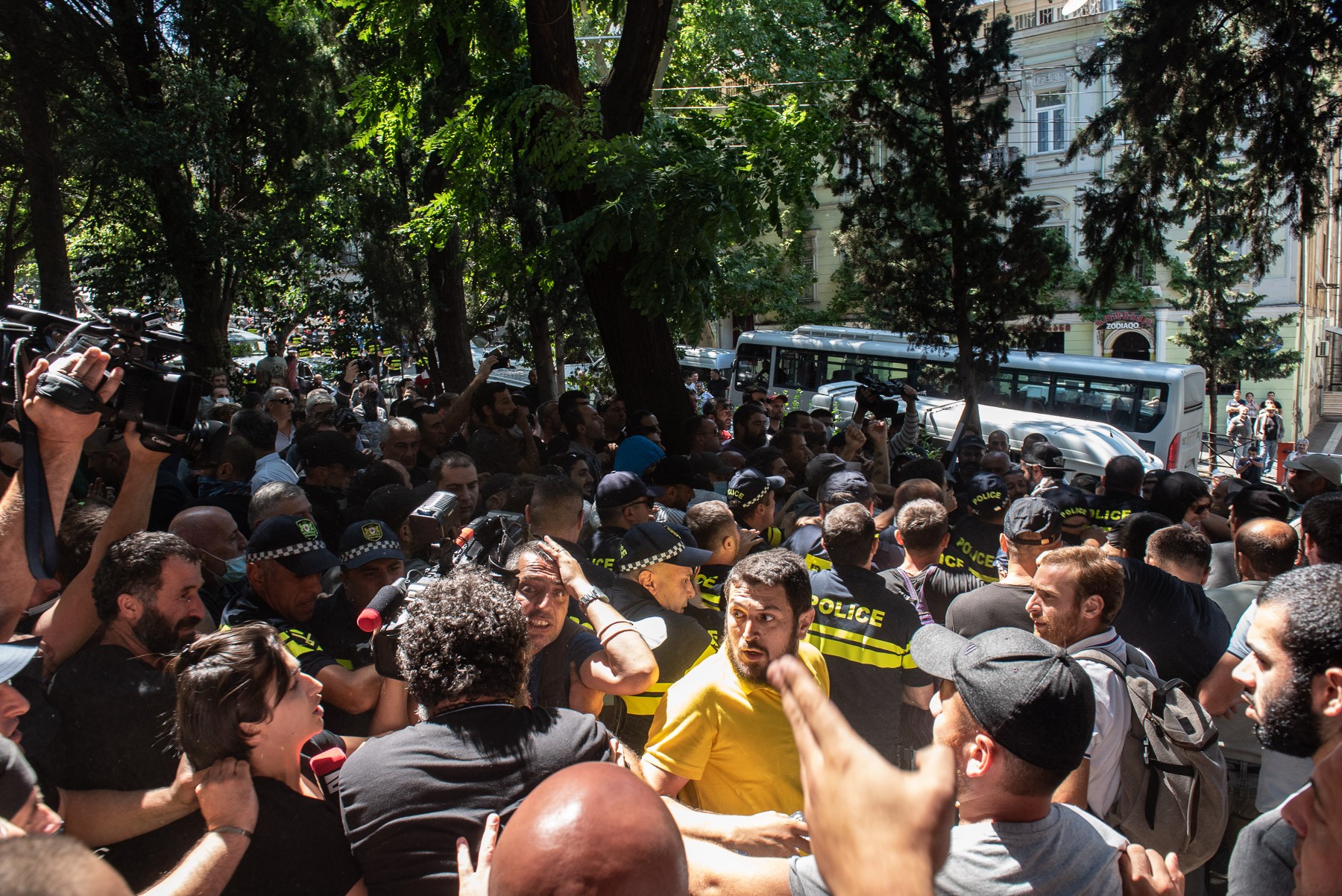
What was to be Tbilisi’s first Pride march has been cancelled for the second time after violent homophobic protests broke out in the city centre.
On Monday afternoon, anti-Pride protesters stormed the offices of Tbilisi Pride and of the Shame Movement, a liberal activist group. Protesters also targeted journalists attempting to cover the day’s events, with at least 50 media workers sustaining injuries. A Polish tourist was also stabbed with eyewitnesses reportedly saying his attackers believed he was gay.
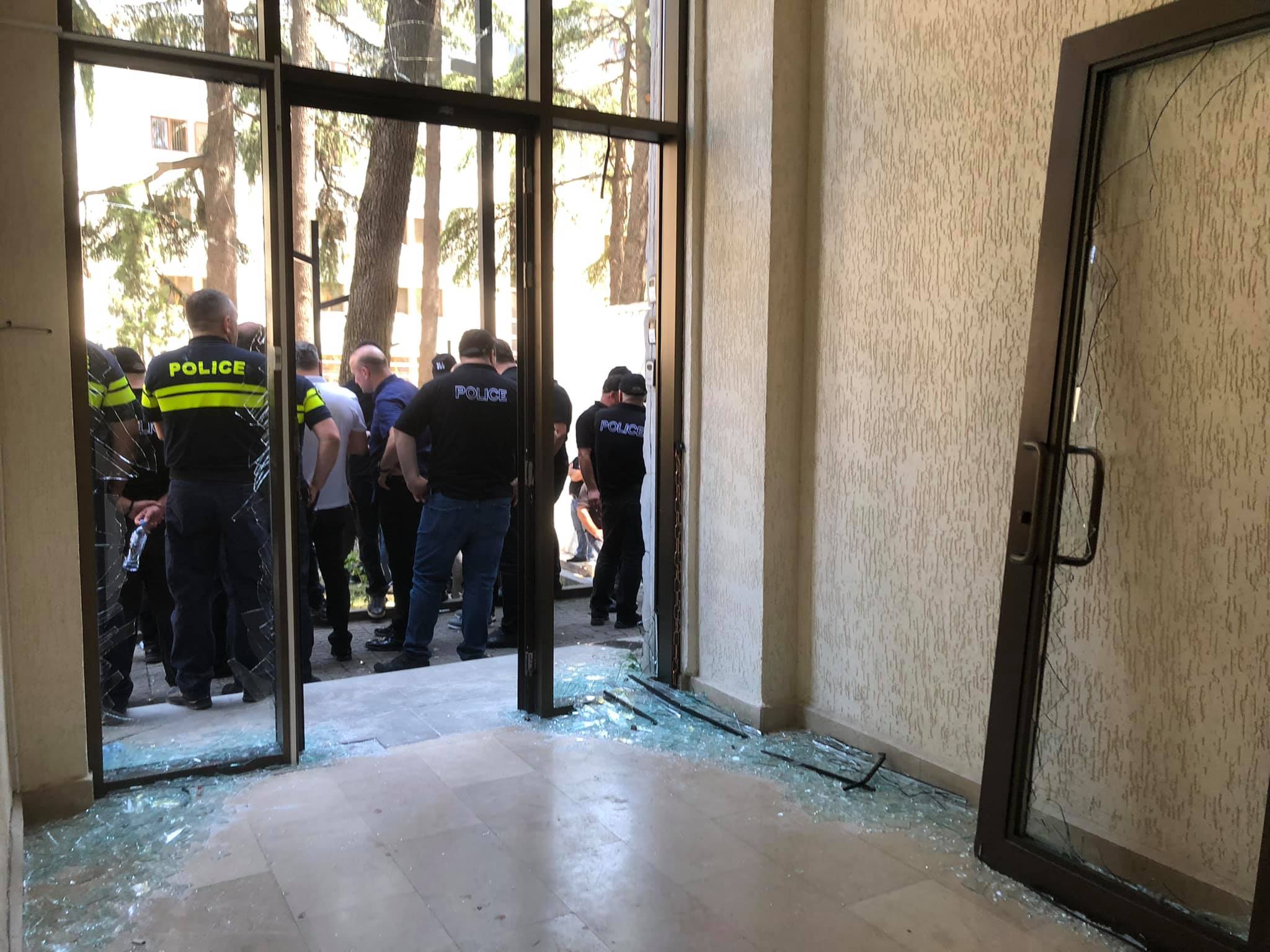
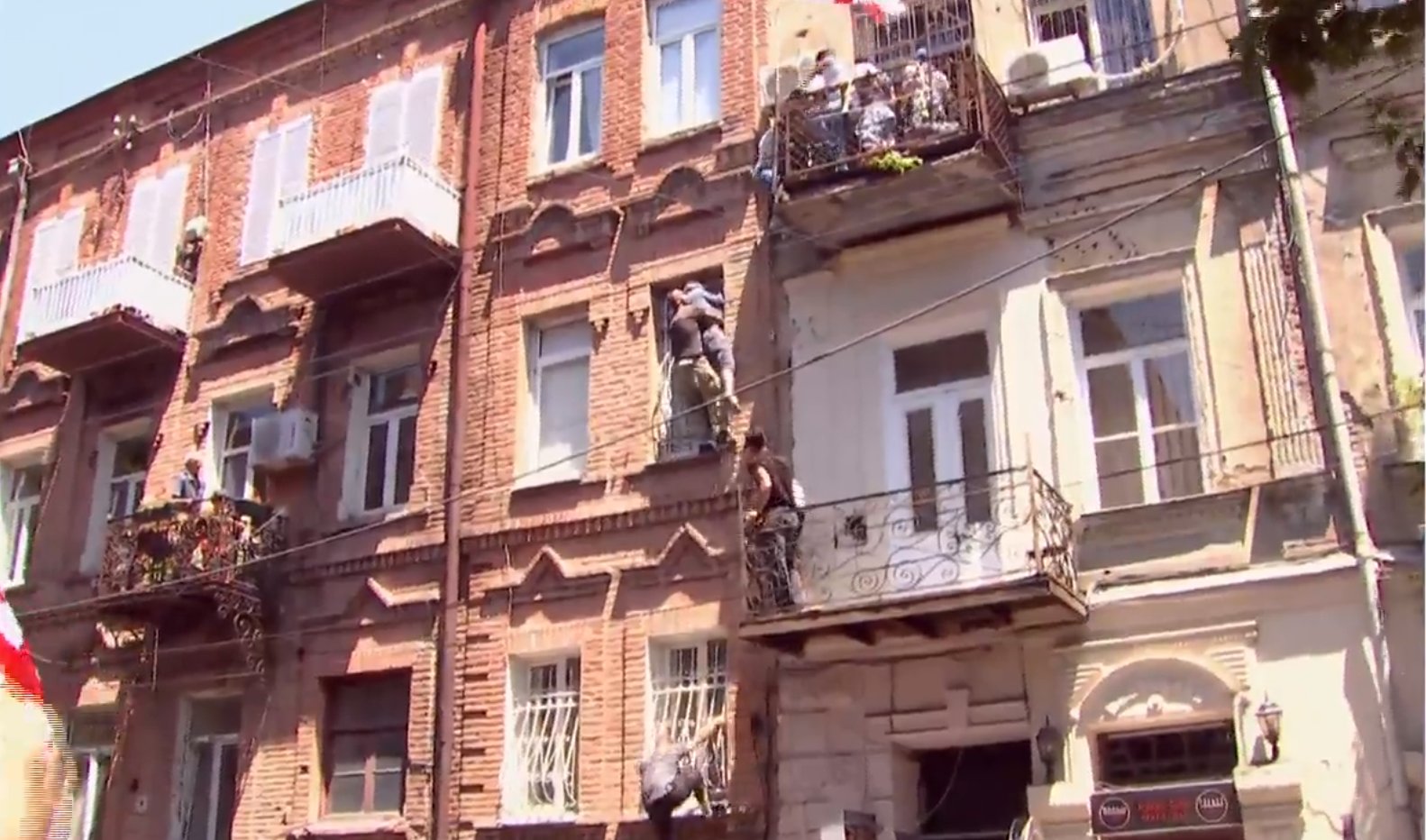
Government critics have accused the authorities of encouraging the violence.
The police presence remained light throughout the day despite attacks on journalists and others continuing into the evening. Several officials from the ruling Georgian Dream Party, including Prime Minister Irakli Gharibashvili, made statements that shifted the blame onto Tbilisi Pride, they also accused — without evidence — the queer rights group of being controlled by the ‘radical opposition’.
The Georgian Orthodox Church were the primary organisers of Monday’s anti-Pride protests. Orthodox priests were visible in protests throughout the day, and on at least one occasion appeared to take part in an attack on a journalist. At least one priest, Deacon Spiridon Tskipurishvili, told the crowd in front of parliament that they were ‘obliged to commit violence for the homeland’.
During the day, the Church’s ruling body, the Patriarchate, repeatedly released statements calling for protesters to remain peaceful.
Reverend Shio Mujiri, the Incumbent of the Patriarchal Throne, suggested that to avoid future violent incidents, Georgia should outlaw ‘insulting religious and national feelings’.
The Interior Ministry reported that 55 people fell victim to attacks during the day, including 53 journalists. They said eight people had been arrested on administrative charges, as well as one for the attempted murder of the tourist who was stabbed.
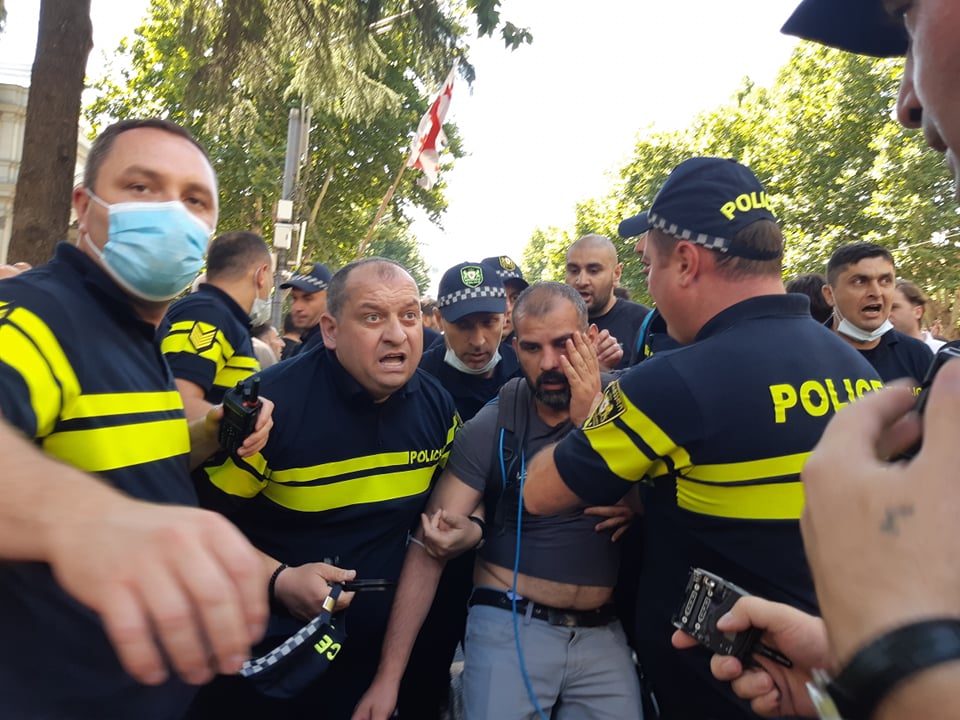
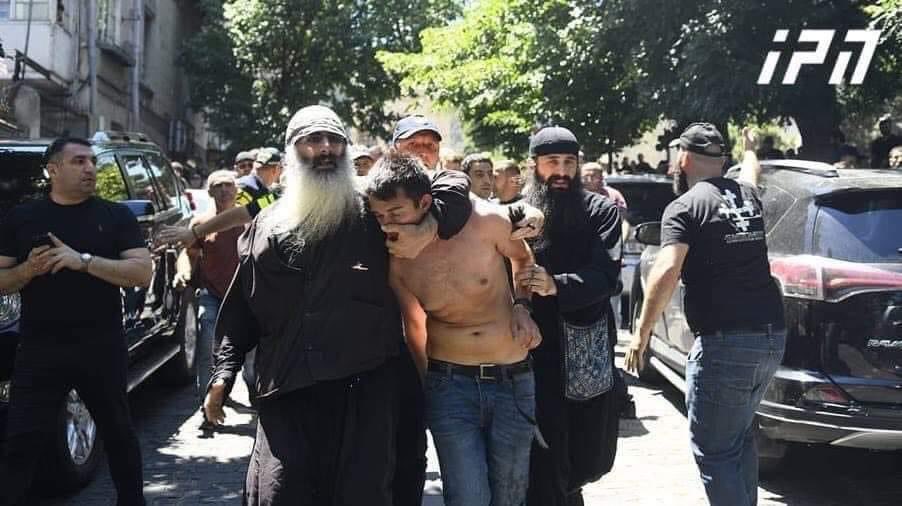
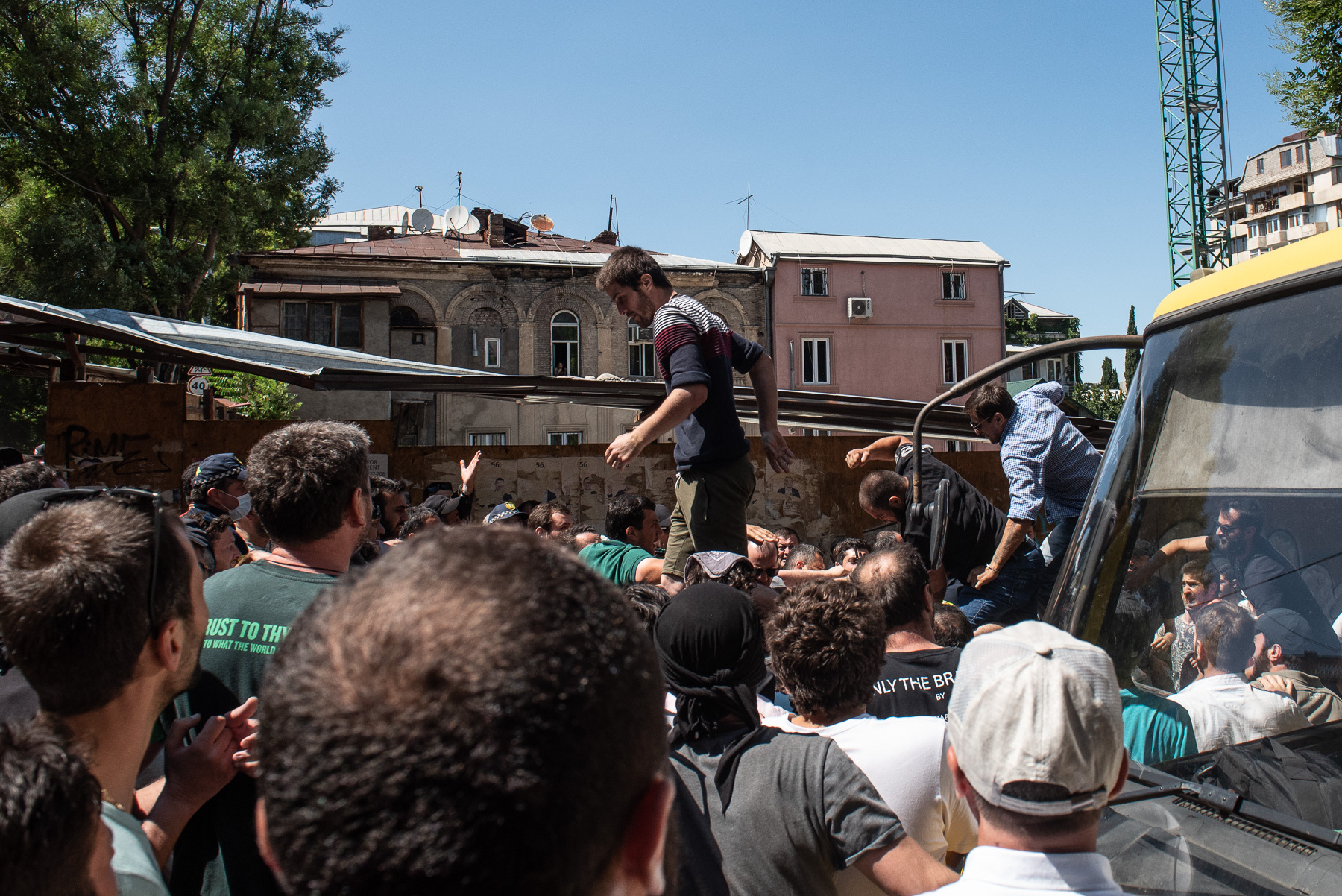
The ministry also said they had opened separate probes into the attacks on the offices of Shame movement, Tbilisi Pride, and Tbilisi Human Rights House, at which a small explosive device was thrown.
Announcing the cancellation of the march at around 15:00, three hours before it was scheduled to take place, Tbilisi Pride said that they made the decision after seeing the ‘encouragement of violent groups by government representatives’.
‘The huge wave of hate we are watching right now is inspired and supported by the government and police’, a statement from the group read.
The head of Tbilisi Pride, Giorgi Tabagari, later said he believed the State Security Services may have been assisting counter-protesters. Tabagari said that the group had privately changed the location of the march five times during the day but that anti-Pride protesters had arrived at the locations ahead of them every time.
Far-right groups began to occupy the area near Rustaveli Metro Station and the Kashveti Church near the parliament building, both of which were included on the March of Dignity route, hours before the event was to take place.
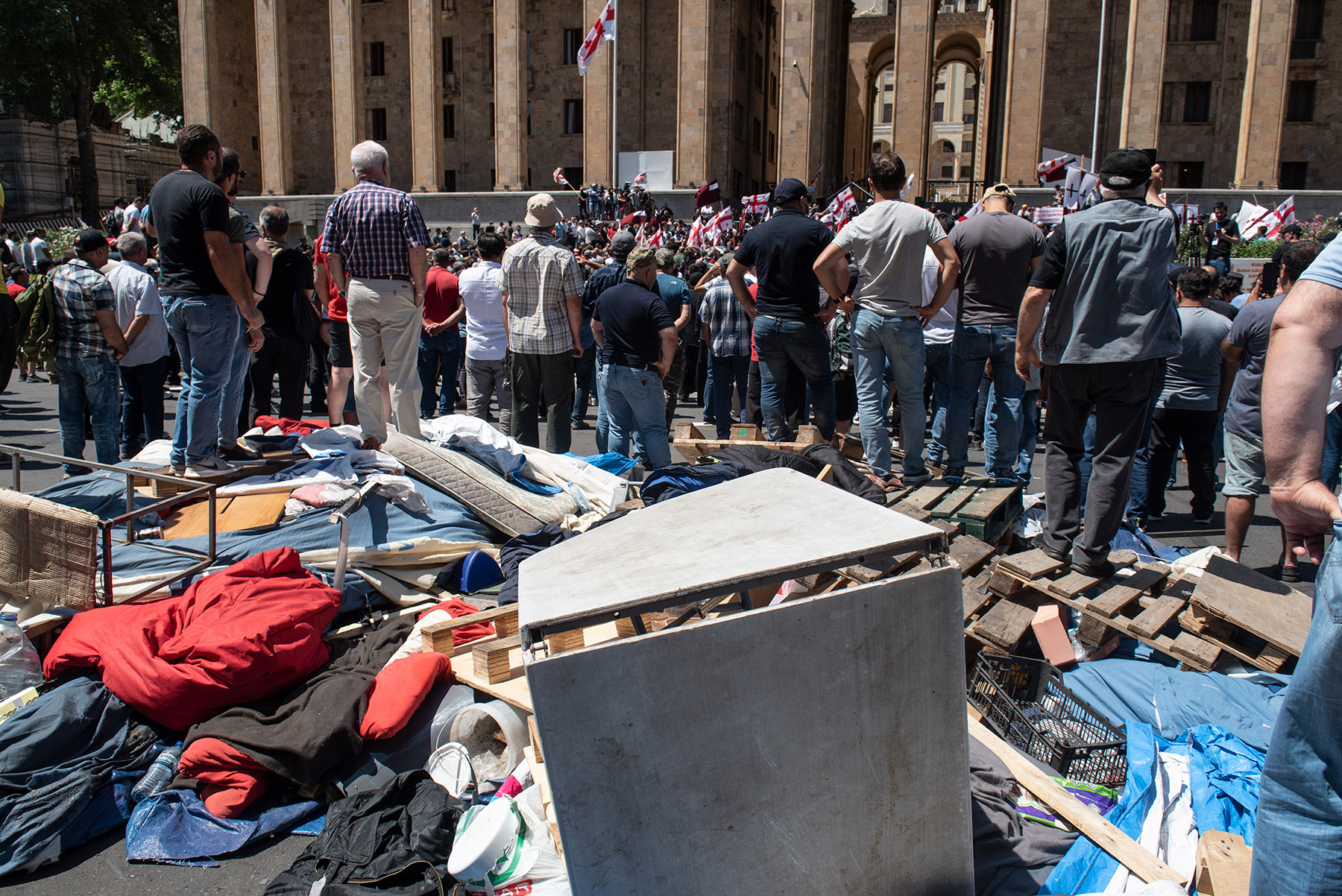
Earlier in the day, protesters tore down tents outside of parliament belonging to several anti-government campaigns as well as the opposition United National Movement party. They also removed the EU flag from in front of the parliament building.
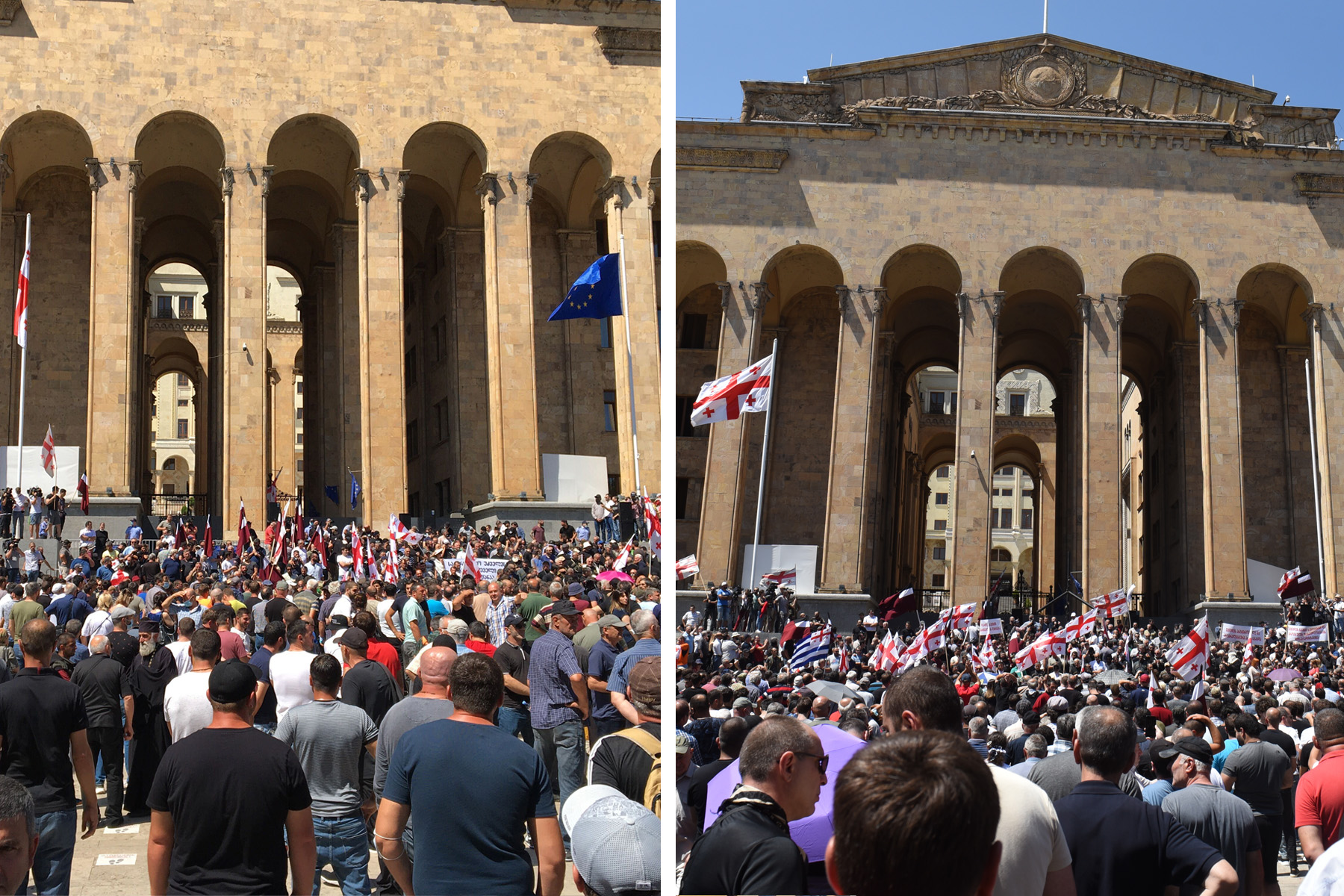
‘Unconstitutional and antisocial’
Among the political figures in power, President Salome Zurabishvili and Tbilisi Mayor Kakha Kaladze made the strongest statements against the violence on the streets.
Georgia’s Public Defender Nino Lomjaria, meanwhile, rebuked the prime minister for making statements that she said ‘escalated’ an already tense situation.
Several local civil society groups including the International Society for Fair Elections And Democracy, Transparency International Georgia, and the Georgian Young Lawyers’ Association put out statements condemning the violence and criticising the government.
The Social Justice Centre said that ‘government populism regarding Pride is unconstitutional and antisocial’.
The government also faced criticism from abroad. Eighteen Western embassies in Georgia including those of the US, UK, France, and Germany put out a joint statement criticising the government and the Church for their failure to condemn the violence. The statement was also signed by the EU Delegation to Georgia, EU Monitoring Mission in Georgia, and the UN offices in Georgia.
The Council of Europe’s Commissioner for Human Rights, Dunja Mijatovic also condemned the violence against activists and journalists in Tbilisi, calling it a ‘woeful illustration of repeated threats LGBTI people face in Georgia’.
History of struggle
Tbilisi Pride Week kicked off on 2 July with a screening of ‘March for Dignity’, a documentary about the planned 2019 Tbilisi Pride march, which was also cancelled after the Police refused to protect the event.
In June 2019, faced with preemptive counter-rallies, Tbilisi Pride held a protest outside the government offices in Tbilisi to demand proper protection from the state, only to be confronted by violent groups again.
Due to the lack of safety and amidst an unrelated ultra-conservative and anti-government stand-off in central Tbilisi, Tbilisi Pride eventually held a small surprise demonstration outside the Interior Ministry on 8 July 2019.
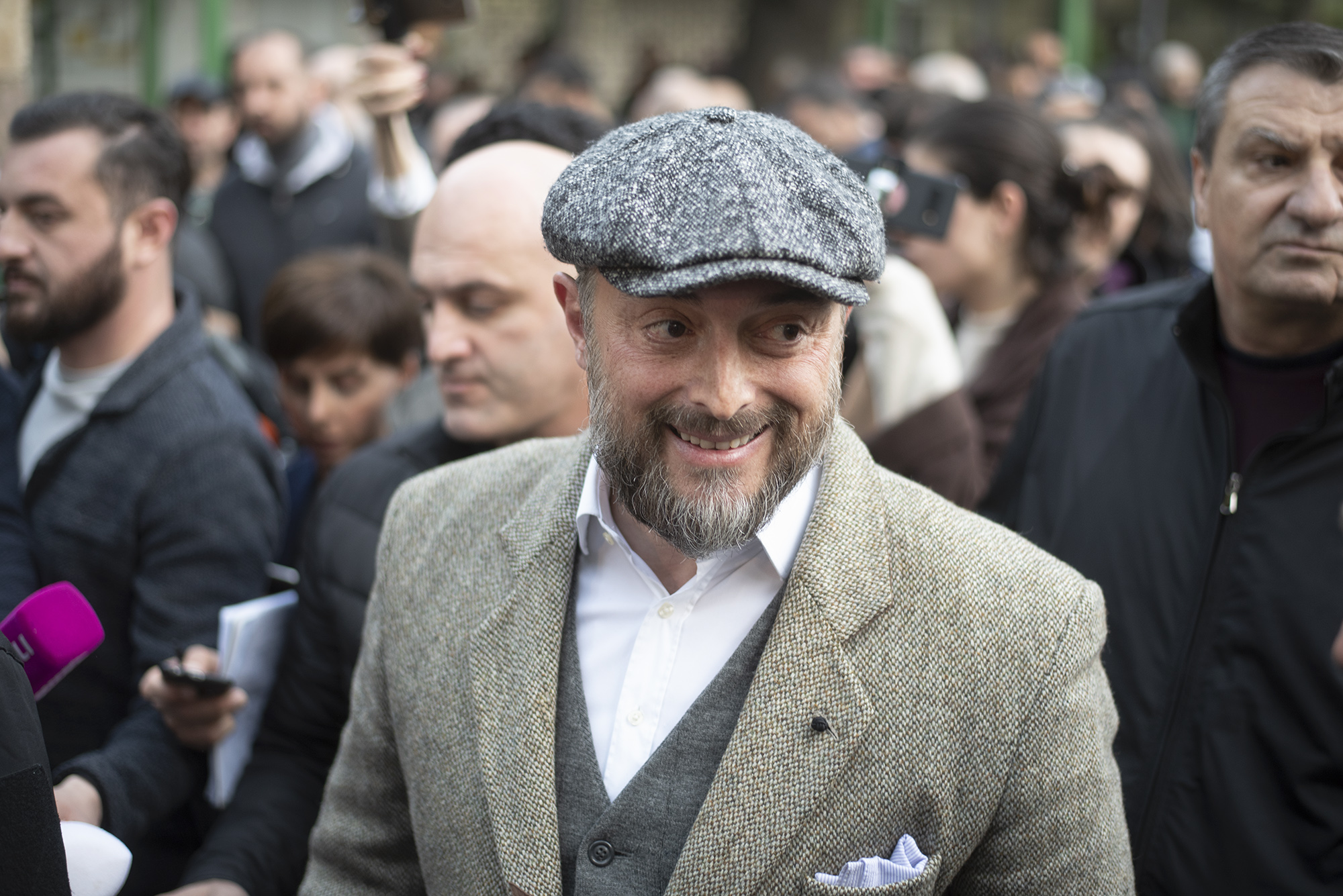
Earlier that year, also for the safety concerns, Georgian queer activists led by the Equality Movement and WISG, a women rights organisation, cancelled their march to mark International Day Against Homophobia, Biphobia, and Transphobia in Tbilisi, planned for 17 May 2019.
Instead, large-scale Church-organised ‘Family Purity’ processions took place in Tbilisi.
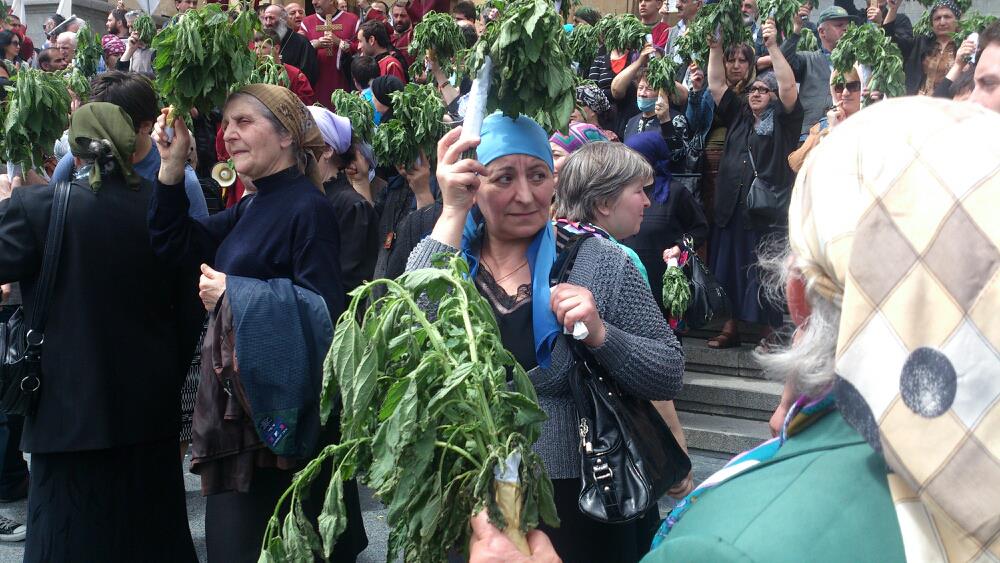
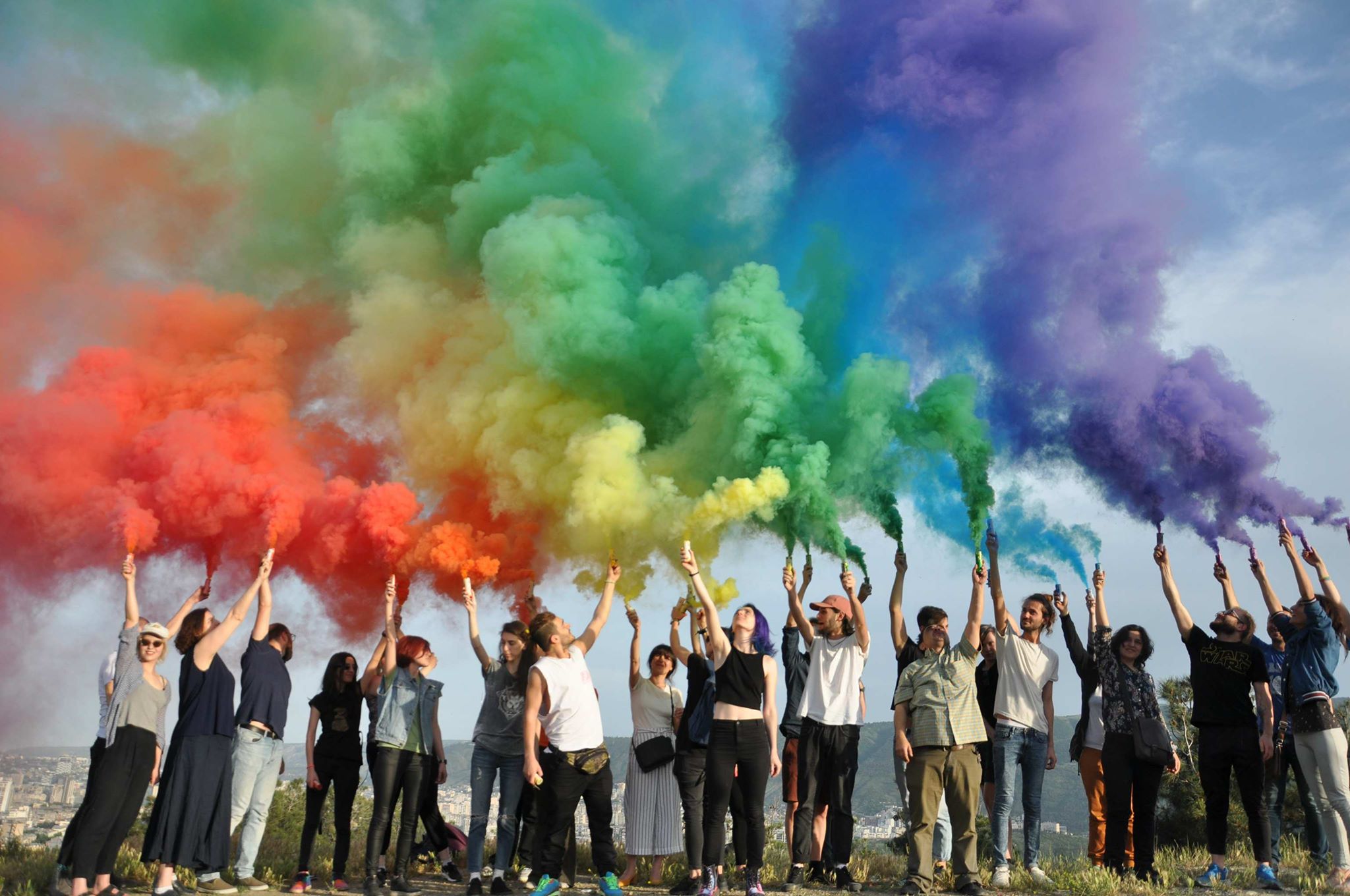
In response to criticism over their failure to protect activists’ public events, Georgian Dream leaders frequently point out that it was under their rule that Georgia adopted an anti-discrimination bill in 2014, that included protections from discrimination based on sexual orientation and gender identity. In 2017, Georgian Dream also introduced constitutional changes to define marriage as a union between a man and a woman.



